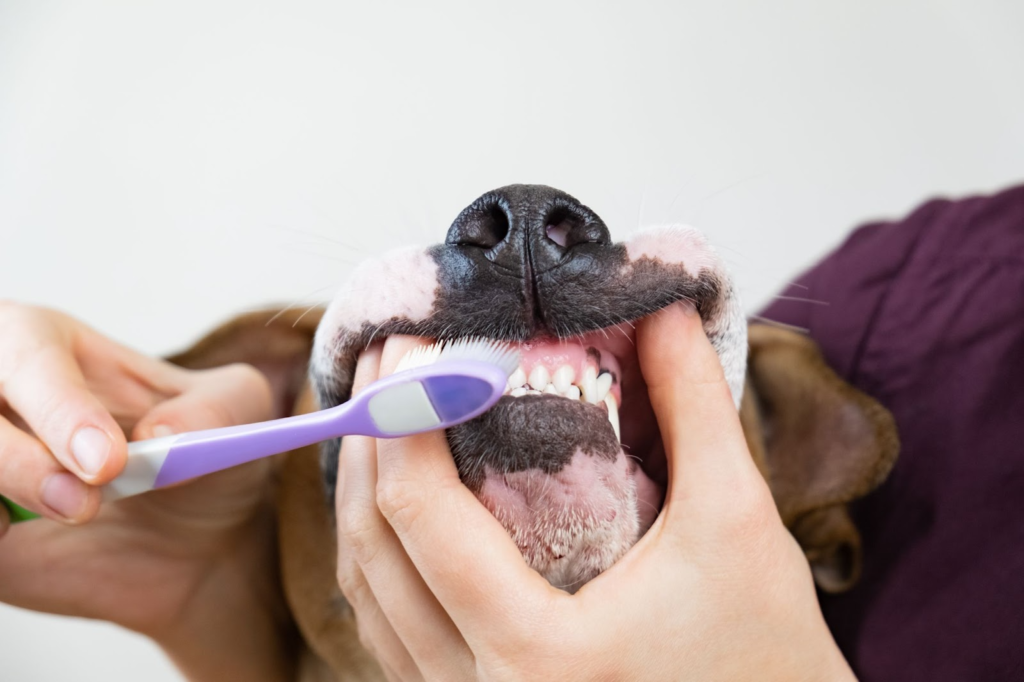Get Rid of Your Dog Bad Breath

As much as we adore our furry friends, their bad breath can sometimes be a real mood-killer. You know the feeling – you bend down to give your pup or kitty some love, only to be met with a nose-wrinkling Dog Bad Breath that makes you want to run for the hills.
But fear not! We’re sharing some top tips and tricks for banishing pets bad breath once and for all. From dental hygiene hacks to diet changes, read on for all the ways you can keep your four-legged friend’s breath fresh and clean.
Why Your Dog has a Bad Breath
Poor Oral Hygiene
Poor oral hygiene in dogs can lead to a variety of periodontal diseases, which can cause pain and discomfort for your pet. If left untreated, these diseases can lead to tooth loss, infection, and even systemic health problems. It is important to understand the causes of poor oral hygiene in dogs and how to prevent it from occurring in order to keep your pet healthy and happy. This article will discuss the causes of poor oral hygiene in dogs, the signs and symptoms of periodontal disease, as well as treatment options available.
Causes of Bad Breath in Dogs
There are many possible causes of bad breath in pets. One common cause is dental disease. Pets with dental disease often have plaque and tartar buildup on their teeth, which can lead to bad breath. Other causes of bad breath in pets can include gastrointestinal problems, such as liver or kidney disease, or even diabetes. If your pet has bad breath, it’s essential to take them to the vet so they can determine the underlying cause and provide appropriate treatment.
How to Prevent Dog Bad Breath
The vast majority of pets will have bad breath at some point in their lives. While some bad breath is normal, if your pet’s breath smells particularly foul, it could be a sign of an underlying health problem. There are a few things you can do to help prevent bad breath in your pet:
1. Feed them a healthy diet:
A healthy diet is important for overall health, including oral health. Look for pet foods that contain high-quality ingredients and are formulated to support dental health.
2. Brush their teeth regularly:
Just like humans, pets must have their teeth brushed regularly to help prevent plaque and tartar buildup. Daily brushing is ideal, but even a couple of times per week can make a big difference. Use a toothbrush designed for pets and toothpaste that’s safe for them to ingest.
3. Take them for regular dental checkups:
Once or twice yearly dental checkups and cleanings by a veterinarian can go a long way towards preventing bad breath and keeping your pet’s mouth healthy.
Home Remedies for Bad Breath in Dogs

When it comes to your pet’s bad breath, there are a few home remedies you can try to help freshen things up.
- Start by brushing their teeth regularly with a pet-safe toothpaste.
- Give them dental chews or treats specifically designed to help with bad breath.
- Feeding your pet a raw diet can also be helpful in reducing bad breath since it helps promote healthy teeth and gums.
If your pet’s bad breath is due to an underlying health issue, such as gum disease, you may need to take them to the vet for treatment. However, these home remedies can still be used alongside veterinary care to help freshen your pet’s breath.
Bad breath in pets is actually more common than you think and it can be caused by a variety of factors, from improper nutrition to dental health issues.
Fortunately, there are plenty of ways that you can help get rid of your pet’s bad breath and keep it at bay.
From regular brushing sessions to providing the right diet for your pet, incorporating these simple steps into your routine will help ensure that your beloved fur baby always has fresh smelling breath!
Also Read:
How to Stop My Dog From Eating Poop
How to Get Rid of Dog Fleas
If you loved this article, you will also love reading our eBook Dubai Ruff Guide
For more furry destinations, the latest blogs, events, and providers you can stay updated by following us on Instagram and signing up for our newsletters.

